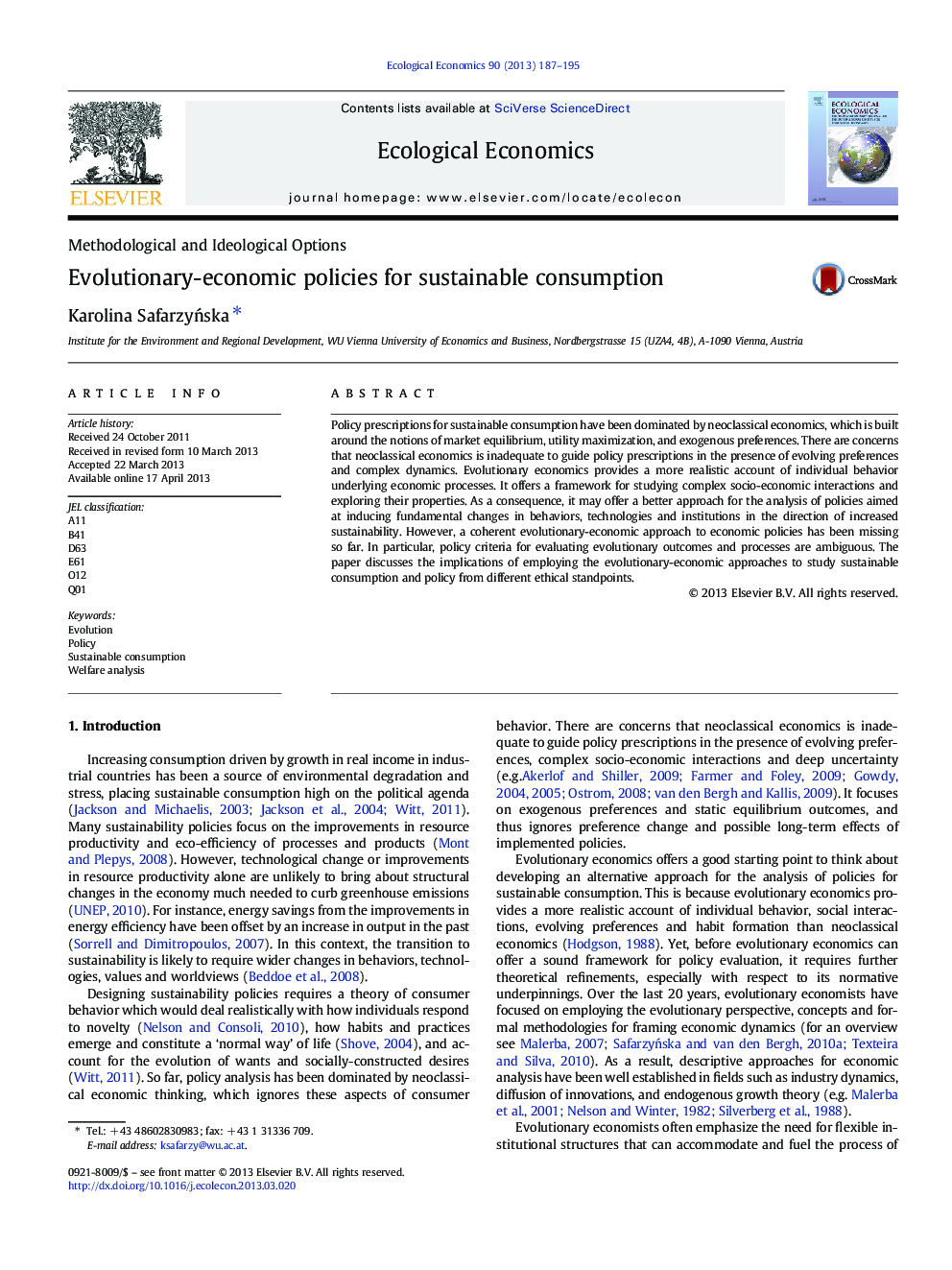| Article ID | Journal | Published Year | Pages | File Type |
|---|---|---|---|---|
| 5049904 | Ecological Economics | 2013 | 9 Pages |
â¢Evolutionary economics offers an approach to study sustainable consumption.â¢It can be employed to study policies for sustainable consumption.â¢Criteria for the evaluation of evolutionary outcomes and processes are ambiguous.â¢We discuss evolutionary policies for sustainable consumption from various ethical standpoints.
Policy prescriptions for sustainable consumption have been dominated by neoclassical economics, which is built around the notions of market equilibrium, utility maximization, and exogenous preferences. There are concerns that neoclassical economics is inadequate to guide policy prescriptions in the presence of evolving preferences and complex dynamics. Evolutionary economics provides a more realistic account of individual behavior underlying economic processes. It offers a framework for studying complex socio-economic interactions and exploring their properties. As a consequence, it may offer a better approach for the analysis of policies aimed at inducing fundamental changes in behaviors, technologies and institutions in the direction of increased sustainability. However, a coherent evolutionary-economic approach to economic policies has been missing so far. In particular, policy criteria for evaluating evolutionary outcomes and processes are ambiguous. The paper discusses the implications of employing the evolutionary-economic approaches to study sustainable consumption and policy from different ethical standpoints.
